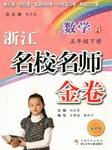题目内容
【题目】假定你是李华,你的英国好友Peter 8月份打算来中国旅游,想先学习一些中文,却不知道如何入门。你决定帮助他,用英语给他写一封邮件告诉他你的建议。内容包括:
1. 你给他的学习建议;
2. 介绍你帮助他的计划;
3. 对结果的展望。
注意:1) 词数100词左右;
2) 可以适当增加细节,使行文连贯。
Dear Peter,
_______________________________________________________________________________________________________________________________________________________________________________________________________________________________________________________________________________________________________________________________________________________________________________________________________________________________________________________________________________________________________________________________________________
Yours
Li Hua
【答案】Dear Peter,
Delighted to hear that you are going to take a trip to China in August and especially want to learn some Chinese first before coming. Here, I suggest that you choose Chinese daily dialogues as a start, like greeting people, asking for directions and so on, which can help you a lot during your trip.
Learning Chinese needs great effort. I’d like to be your teacher and send you an e-book with my teaching schedule later. Besides, let’s have an online class over the Internet every weekend, through which I will try my best to make your learning easier and surely you can speak some fluent Chinese before your arrival.
Looking forward to your early reply.
Yours,
Li Hua
【解析】本文是建议信属于应用文。建议信是向收信人就某事提出自己的建议或忠告,以便让对方接受自己的想法、主张并解决有关问题。建议信要给出写信的原因,建议的内容,提出的建议要合情合理,语气一定要得当,既要委婉礼貌,又要有说服力。写作时,要注意意思要连贯,符合逻辑。尽量使用自己熟悉的单词句式,同时也要注意使用高级词汇和高级句型,使文章显得更有文采。
亮点:本文,语言恰当,委婉礼貌。要点完整,,句意连贯。文中既有简单句又有复杂句,同时多种复合句交替使用,给文章增添了档次。如复杂句I suggest that you choose Chinese daily dlalogues as a start, like greeting people, asking for directions and bargaining for souvenirs, which can help you a lot during your trip,这里含有一个宾语从句和一个非限制性定语从句。复杂句Let’s have an online class over the internet every weekend, through which I will try my best to make your learning easier and surely you can speak some fluent Chinese before your arrival.这个复杂句中含有一个非限制性定语从句的并列句。

 浙江名校名师金卷系列答案
浙江名校名师金卷系列答案 全优冲刺100分系列答案
全优冲刺100分系列答案